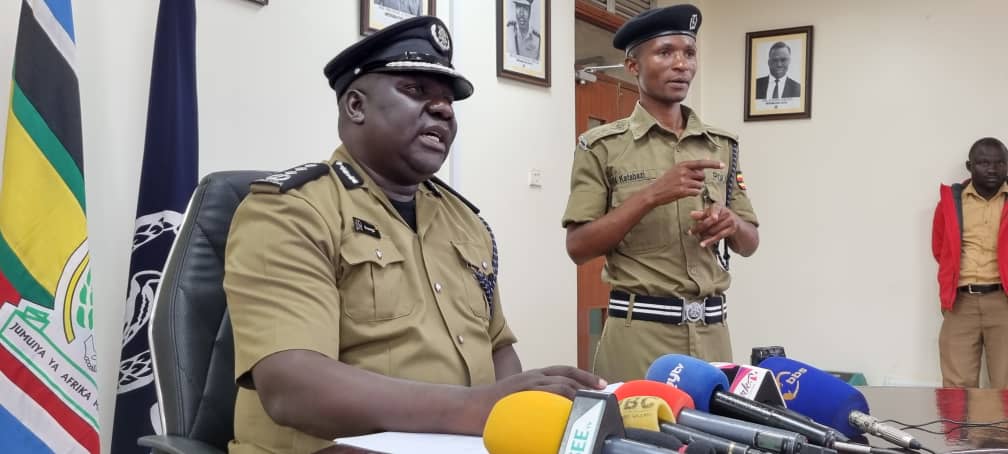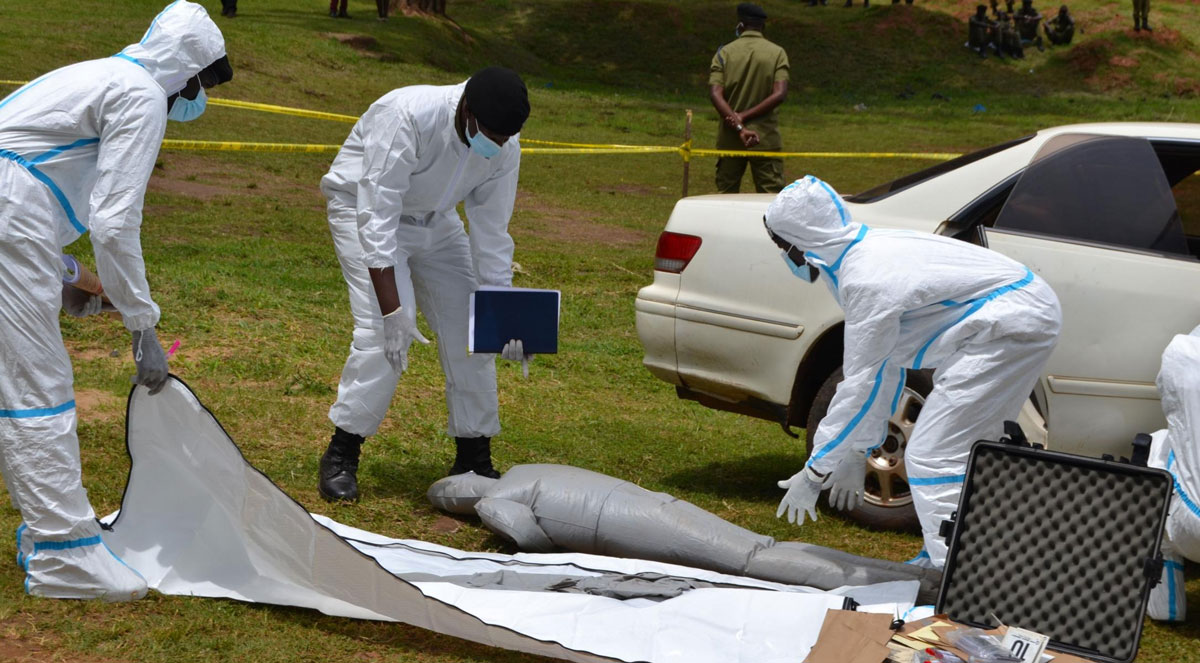The Inspector General of Police Martins Okoth Ochola has released a set of guidelines to be followed by officers following the Ebola Virus Disease out break in Uganda.
Last week the Ministry of Health announced an outbreak of Sudan Ebola strain in the central district of Mubende after one confirmed patient died.
The first casualty was a 24-year -old -man who succumbed at the Mubende referral hospital where he was transferred with symptoms of the disease. Since then, the health Ministry has confirmed 34 cumulative infections and 21 deaths reported from Mubende, Kyegegwa.
Of those admitted,16 are confirmed to have Ebola while 18 are probable cases.Of the deaths, 4 succumbed from the disease while 17 are probable.
In his directives through the Police Spokesperson Fred Enanga, Ochola has called for extra vigilance from all territorial commanders on ground and at police stations.
Enanga says the officers should be on the lookout for any signs and symptoms of Ebola among them or in police cells.
He also called for good general hygiene practices at police stations, no physical contact, disinfecting of facilities among others.

The guidelines from the IGP include ;
– Practice proper hand hygiene by promptly washing or sanitizing hands after coughing, sneezing or physically interacting with others.
– Avoid touching your face (eyes, nose and mouth).
– Cover your mouth and nose- with your bent elbow or tissue when you cough or sneeze.
– Avoid close physical contact with others, including shaking hands of hugging.
– Avoid sharing items like clothes, shoes etc which can carry body fluids.
– Maintain at least a 6 ft distance between your self and anyone who is coughing, sneezing or talking, when possible. This measure on social distance MUST cut a cross all offices, the police counter or reception, police cells and transportation.
– Promptly disinfect your gear, including your duty belt, after physical contact with any individual.
– Keep disinfectant wipes and hand sanitizers in an easily accessible place while on duty.
– Use of referrals of LC5, elders and other community leaders, for minor cases.
– Seek medical care early if you have a fever, cough or difficulty breathing.
– Consider sanitizing items you frequently touch like phones, laptop and folders/clipboards.
– All patrol cars should be regularly sanitized at the steering wheel, gear shift, dispatch radio module, door handles and edges.
– Consider restricting unnecessary movements to burials, weddings, markets and other congested places. Controlled movements are very crucial.
Ebola Sudan strain, is a haemorrhagic fever whose symptoms include intense body weakness, muscle pain, headache and sore throat, vomiting, diarrhoea and rashes among others.
The World Health Organization says the Ebola Sudan strain is less transmissible and has shown a lower fatality rate in previous outbreaks than Ebola Zaire, a strain that killed nearly 2,300 people in the 2018-2020 epidemic in neighbouring Democratic Republic of Congo.




